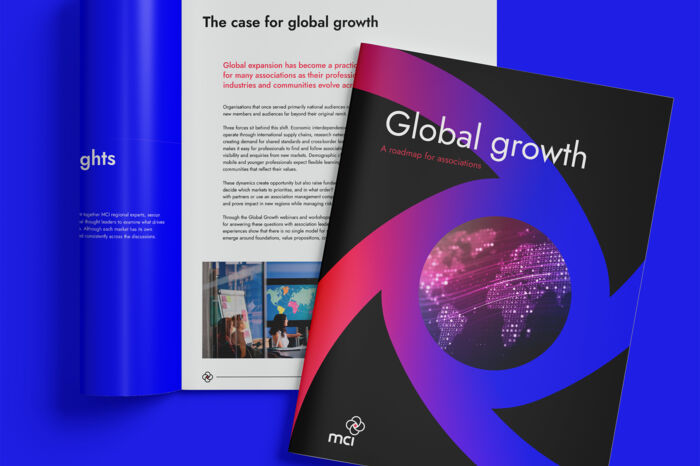
Integrating technology in healthcare marketing
Closely tied to developing trends in the healthcare field are the increasingly sophisticated types of technology that are being used to support marketers and how they interact with their customers. The following technologies are fundamentally shaping the landscape.
Artificial intelligence (AI) & machine learning (ML)
ML and AI have been around for a while now, but it's only in recent years that their impact has been felt so acutely in healthcare marketing. Making light of previously labour-intensive tasks like data analysis, AI algorithms can interrogate vast data sets to predict patient behaviour and tailor marketing messages to individual patient profiles.
Also, AI is the power behind the chatbots that are widely used on medical provider websites to deal with everyday patient enquiries. Having this functionality available for patients naturally results in better engagement and higher satisfaction rates - both desirable outcomes from any marketing campaign.
Data analytics for effective decision making
Going back to data analytics for a moment, its role is one that shouldn't be understated when it comes to marketing strategies in the healthcare industry. The reason why it's being used so widely by marketers in 2024 is the detailed insight that it provides, allowing your healthcare marketing to be laser-targeted.
By analysing vast swathes of patient data, providers are able to spot trends, pain points and preferences. These metrics can be game-changing, offering the information needed to predict future demand for certain services so that messaging can be adjusted.
Augmented reality (AR) and virtual reality (VR)
At the very forefront of healthcare marketing and patient engagement this year is virtual reality (VR) and its close relative augmented reality (AR). Successful marketers are using this tech to provide immersive experiences that simplify otherwise complex medical information.
A few healthcare marketing plan examples of this technology in practice include:
- Virtual Tours of Facilities - VR can be employed to offer virtual tours of healthcare facilities, allowing potential patients to explore wards and treatment areas from the comfort of their own homes.
- Educational AR Apps - AR apps can show the effects of specific health problems on the human body, helping patients understand their condition and engage better with you as a healthcare provider.
- Surgery Walkthroughs - VR simulations can also be extremely helpful in educating potential patients on surgical processes before going into theatre. This can reduce anxiety while demonstrating medical skills and experience.
- AR for Prosthetics - Using AR allows patients to visualise prosthetics on their bodies before fitting, assisting in emotional and physical adaptation
- Virtual Reality Therapy - VR provides great therapy session environments for mental health conditions, offering immersive experiences that promote relaxation and engagement.
- AR/VR training - these tools can also be used when marketing to healthcare professionals, giving a way to showcase medical products and other educational matters. The context they provide can breathe life into any marketing campaign.
The use of these technologies now and in the future is set to fundamentally enhance the patient experience offered and allow a deeper connection between patients and the providers that serve them. As the sector continues to evolve, those who embrace it will be better able to differentiate themselves in a highly competitive sector.
Looking for healthcare marketing expertise that can set you apart?
If you're looking for your healthcare marketing efforts to connect with patients and foster a reputation as a leading light in the industry, it’s essential to adapt to current trends. Remaining relevant in this rapidly evolving industry requires exceptionally transparent and smooth patient experiences. As we've seen, there are plenty of tools that you, or any marketing agency you work with, can use to provide them.
At MCI, we offer industry-leading healthcare marketing expertise that's backed by years of experience. As such, our team has the skill and know-how to create healthcare marketing campaigns that resonate with patients and healthcare professionals alike. We strive to formulate strategies that highlight your unique strengths and achieve your objectives.
We're with you every step of the way, from concept to implementation, empowering you to refine your strategy and get ahead of your competition. So, why not take a look around our website or get in touch? We'll ensure you're glad you did from minute one.




